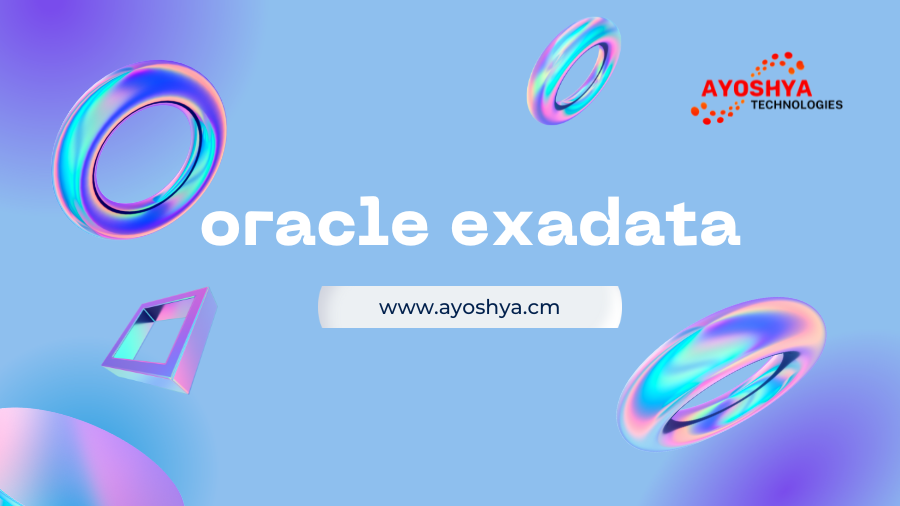Power of Oracle Exadata: A Deep Dive into Next-Gen Database Solutions
I. Introduction
A. The Evolution of Database Solutions
The landscape of database management has witnessed a remarkable evolution, with innovations like Oracle Exadata redefining how organizations handle their data.
B. Role of Oracle Exadata in Modern Database Management
Oracle Exadata plays a pivotal role in modernizing database management, offering a comprehensive solution that goes beyond the capabilities of traditional systems.
II. Understanding Oracle Exadata
A. Overview and Key Features
Oracle Exadata is an engineered system designed for high-performance database operations, combining both hardware and software components seamlessly.
B. Hardware and Software Integration
Unlike traditional databases, Exadata integrates specialized hardware and software, optimizing the entire system for maximum efficiency and performance.
C. How Exadata Differs from Traditional Database Systems
Exadata stands out by leveraging smart storage features, in-memory processing, and real-time analytics, distinguishing itself from conventional database solutions.
III. Installation and Configuration
A. System Requirements
Before diving into the installation process, it’s crucial to ensure that your infrastructure meets the specified requirements for Oracle Exadata.
B. Step-by-Step Installation Guide
Follow a detailed guide to installing Oracle Exadata, covering everything from hardware setup to software configuration.
C. Best Practices for Configuration
Optimize your Exadata configuration with best practices to ensure that you’re harnessing its full potential for your specific use case.
IV. Performance Boost with Oracle Exadata
A. In-Memory Processing Capabilities
Explore how Oracle Exadata’s in-memory processing capabilities elevate database performance, enabling faster query responses and data processing.
B. Smart Storage Features
Learn about Exadata’s smart storage features, which intelligently offload database processing to storage servers, reducing the workload on database servers.
C. Real-time Analytics and Reporting
Experience the power of real-time analytics and reporting made possible by Oracle Exadata, providing insights into your data at unprecedented speeds.
V. Scalability and Flexibility
A. Adding Capacity Seamlessly
One of the strengths of Oracle Exadata is its ability to scale horizontally and vertically, allowing organizations to add capacity seamlessly as their data requirements grow.
B. Adapting to Growing Workloads
Examine how Exadata adapts to growing workloads, ensuring that your database system remains responsive and performs optimally even under increased demand.
C. Integration with Cloud Services
Discover how Oracle Exadata integrates with cloud services, providing a flexible and scalable solution for organizations embracing cloud computing.
VI. Security Measures in Oracle Exadata
A. Encryption and Data Protection
Understand the robust encryption mechanisms in Exadata, ensuring that your sensitive data is protected from unauthorized access.
B. Access Control and Authorization
Implement access controls and authorization policies to safeguard your database, controlling who can access, modify, or delete critical information.
C. Ensuring Compliance Standards
Explore how Exadata helps organizations meet compliance standards, providing a secure environment for handling regulated data.
VII. Oracle Exadata in Real-world Applications
A. Case Studies and Success Stories
Dive into real-world case studies and success stories where organizations have leveraged Exadata to overcome challenges and achieve significant improvements in their database operations.
B. Industries Benefiting from Exadata
Explore the diverse industries that benefit from Exadata, from finance to healthcare, showcasing its versatility and applicability across sectors.
C. Performance Metrics and ROI
Examine performance metrics and return on investment (ROI) data, showcasing the tangible benefits that organizations have realized by adopting Exadata.
VIII. Common Challenges and Solutions
A. Troubleshooting Performance Issues
Address common performance issues that organizations may encounter with Exadata and learn effective troubleshooting strategies.
B. Upgrading and Patching Exadata
Stay proactive by understanding the process of upgrading and patching Orale Exadata to ensure that your system is up to date with the latest features and security fixes.
C. Ensuring High Availability
Explore strategies for ensuring high availability in Exadata, minimizing downtime and ensuring continuous access to your critical database services.
IX. Future Trends in Database Management
A. Oracle Exadata in the Era of Big Data
As big data continues to grow, discover how Exadata is positioned to handle the challenges of managing and processing vast amounts of data.
B. Machine Learning Integration
Explore the role of machine learning in database management and how Exadata is incorporating intelligent features to optimize performance and resource utilization.
C. Role in Shaping the Future of Databases
Understand how Exadata is contributing to shaping the future of databases, offering a glimpse into the evolving landscape of data management.
X. Conclusion
A. Oracle Exadata: A Game-Changer in Database Management
Summarize the key takeaways, highlighting how Exadata stands as a game-changer in the realm of database management.
B. Embracing the Next Generation of Database Solutions
Encourage readers to embrace the next generation of database solutions represented by Exadata, acknowledging its transformative impact on data management.
XI. FAQs
A. What makes Oracle Exadata different from traditional databases?
It differs by integrating specialized hardware and software, offering in-memory processing, smart storage features, and real-time analytics for superior performance.
B. How does Exadata enhance database performance?
It enhances performance through in-memory processing, smart storage offloading, and real-time analytics, resulting in faster query responses and data processing.
C. Can Exadata handle large-scale data analytics?
Yes, Exadata is well-equipped to handle large-scale data analytics, providing the performance and scalability required for processing extensive datasets.
D. What security features does Oracle Exadata offer?
Exadata offers robust security features, including encryption, access controls, and compliance standards adherence, ensuring the protection of sensitive data.
E. Is Oracle Exadata suitable for small and medium-sized businesses?
While designed for enterprise-level performance, Exadata can be tailored for the needs of small and medium-sized businesses, providing scalability as their operations grow.
You may like this:
SAP & Oracle Consulting: A Winning Combination
Oracle enterprise Data management (EDMCS)



